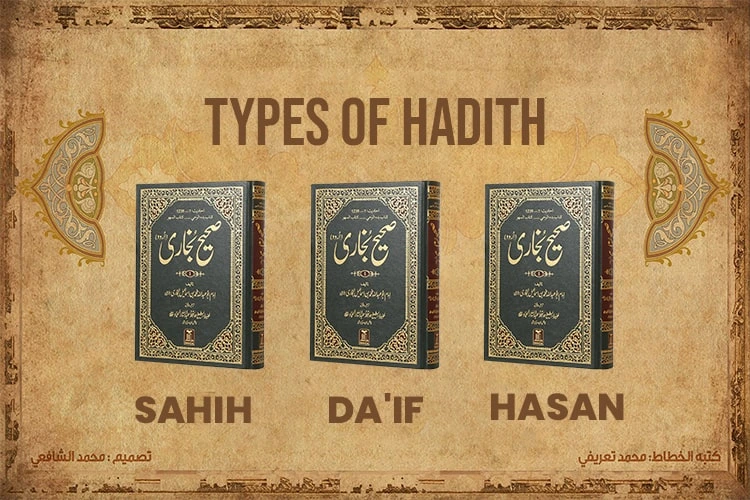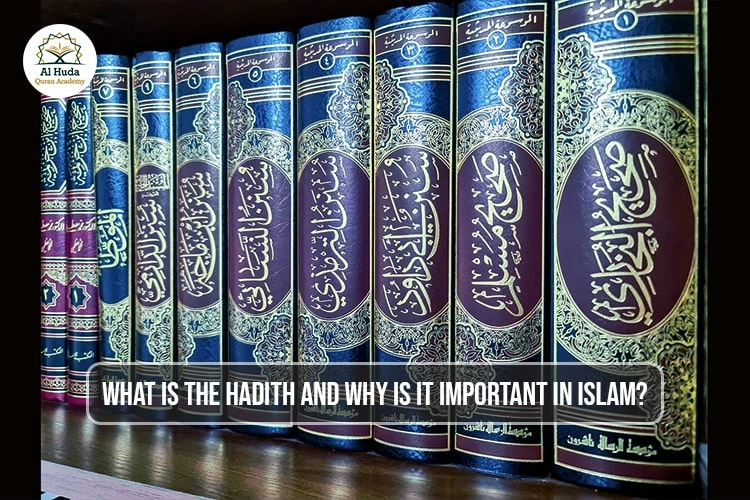The word “Hadith” is frequently heard whenever conversations focus on Islam. But what does it refer to, and why is it of such great concern within the Muslim religion? This article will focus on ‘what is the Hadith, its significance in Islam’, and how it affects the daily lives of Muslims around the globe.
Defining the Hadith
The Prophet Muhammad’s (PBUH) quotes, gestures, and confirmations are all cataloged under the Hadith. As a document of immense importance for all Muslims, it serves as a critical source of reference together with the Quran. While the Quran is sacred and its words are believed to be from God, the Prophetic Teaching contains the actions and lessons taught by Prophet Muhammad, working as an interpreter of the Quran.
So what precisely is the Hadith? I believe one of the most significant contributions of the Hadith is that it has a huge compilation of sayings that serve as commentary for the verses of the Quran. The sayings elaborate on how Prophet Muhammad (PBUH) configured and regulated his lifestyle, his relationships, and his preaching on how to pray, legislate, and practice morality.
Types of Hadith: The classifications of Hadith are based on the levels of authenticity assigned to them as follows:

- Sahih: Authentic sayings of the Prophet (PBUH) that come from verified sources, and it has a certain level of narrators’ reliability and breaks within the narration.
- Da’if: These sayings have issues in the chain of narrators or content, also known as weak hadith.
- Hasan: Good but less authentic than ‘sahih’. A hasan Narration is more authentic than a da’if hadith, however under Hasan weak hadiths stand. Each type has its significance in the growth of Islamic knowledge.
The Historical Context of the Prophetic Teaching
The sayings (Narration) of Prophet Muhammad (PBUH) were not recorded verbatim nor compiled in books immediately after his death. During the inception phase of Islam, the sayings and doings of the prophet were mainly conveyed verbally. The Prophet’s companions who were closest to him contributed in memorizing and spreading his teachings.
His companions strived to collect all the Prophet’s teachings for preservation, which was followed through after his death. The process was more systematic in subsequent centuries which resulted in
Prophetic Teaching compilations being written by scholarly figures like Imam al-Bukhari, Imam Muslim and others.
The dedication and work of Hadith scholars contributed to the valid documentation of the life and teachings of the Prophet.
The Importance of Hadith in Islam
The foremost source of a Muslim life is the Hadith which offers guidance from Salah (prayers) to fasting during Ramadan and from daily activities to the ethical treatment of others. Without the Hadith, many intricate practices of Islam would be severely complex.
In particular, it provides helpful information related to the Quran. The Quran is more of a concise guide, presenting the general ideas and the Prophetic Teaching supplements utmost detail. For instance, when it comes to charity, the Quran states it as a general concept, and the Hadith is then required to shed light on the specifics such as how much is to be given, how often, and who is to receive it.
The Structure of Hadith
A typical hadith includes two very important components:
- Isnad: is the chain of those who narrate the hadith. This is particularly important because the integrity of the Prophetic Teaching is dependent on the trustworthiness of the narrators.
- Matn: is the subject matter, content, or text of the Prophetic Teaching. It is within this section that the actual utterance, deed, or sanction of the Prophet Muhammad (PBUH) is captured.
The Authentication of Prophetic Teaching
In the Islamic context, not all quoting is considered equal. As any hadiths, or statements attributed to the Prophet Muhammad, quoting requires a strong backbone system of evaluation for reliability. Only certain ones marked with the label Sahih, meaning reliable, are accepted. This verification, or Isnad, requires strict authenticity from each narrator, ensuring that the text aligns with any previously established scriptures.
Prophetic Teaching experts like Imam Bukhari and Imam Muslims set the foundational structure for quoting hadiths because of the high standards they set for awarding authenticity. That is also the reason why their work is quoted by all other scholars.
The Role of Famous Hadith Collections

Throughout history, numerous historians and scholars have dedicated their entire careers to the study and collection of Hadiths. The most famous compilations are the following:
- Sahih al-Bukhari: A compilation known as the Al Hadiths, accepted as authentic by a majority of people and most often quoted.
- Sahih Muslim: Another compilation that is treated with great respect as and accurately records true events.
- Sunan Abi Dawood: contains Prophetic Teaching of the sunnah which deals with most of the teachings of the Prophet about legislative matters.
All of these collections are important to understand the different aspects of the life and practices of Prophet Muhammad (PBUH).
How the Hadith Influences Islamic Jurisprudence (Fiqh)
The value of Hadith in the domain of Islamic Jurisprudence or Fiqh cannot be understated. Muslim scholars use the Hadith to analyze the Quran which assists in the formulation of Sharia law. The Hadith is studied by scholars so that they can issue Fatwas on multiple subjects like Marriage, Inheritance, and Criminal law.
Hadith gives precision and comprehensiveness to Islamic Jurisprudence. The absence of Prophetic Teaching would have brought into existence a tremendous amount of ambiguity and problems for Muslims particularly for more complex legal and moral concerns.
Hadith in Everyday Life
The funneled knowledge of Hadith is not mere speculation; it impacts a Muslim’s daily life. For instance, the Ahadith provides directions for performing Salah, methods of fasting during Ramadan, relation with one’s parents, and even how to greet a person with a smile.
Such ethical teachings guide Muslims in following the teachings of Prophet Muhammad (PBUH).
Misunderstandings About the Hadith
The Hadith collection is sometimes misunderstood. Some may presume that all sayings are identical, but that is not the case. They differ in terms of acceptance of levels. Some might also ‘erroneously’ assume that Hadith does not hold as much weight as the Quran does. Both are significant, for the adequate comprehension of Islam’s patented theory of Islam.
Actually, all knowledge can be primary, and consultations of the scholars are fundamental. The same applies to the particulars of Narration . It is a domain that needs attention so that the knowledge acquired may be put to use.
Frequently Asked Questions (FAQs)
The main types of Hadith include Sahih (correct), Da’if (broken), and Hasan (acceptable). Each type has its own level of reliability and trustworthiness.
The validation of the text is done as per the literature review of chains of narrators (Isnad) and if the persons were reliable, the text should be in agreement with other Islamic scriptures.
Yes, Hadith serves as a source of rules in Islamic law (Fiqh) since it elaborates the provisions and interpretations of the teaching of the Quran.

